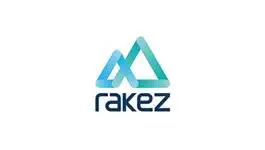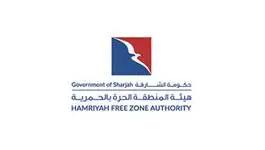CORPORATE TAX

What are Corporate Services?
What is Our goal?


Corporate Finance Services in the UAE.
- Buyside and Sell-side Advisory services.
- Mergers & Acquisitions (M&A) Advisory services.
- Different Valuation Services.
- Diligence and Tax Planning services.
- Many Commercial and Legal Negotiations with organizations.
- Banking Relationships for Different fundraising campaigns.
- Corporate Finance Solutions.
- Corporate Structuring and Registrations.
- Drafting and Reviewing of SOPs.
- Drafting and Reviewing rules of companies.
- Setup of Business.


Benefits of Using Corporate Finance Services in the UAE
It is important to choose the right service provider in the UAE. There are some factors to see when choosing a service provider in UAE:
- Finding the best Industry Experts.
The first thing to look forward to is a firm with plenty of experience in your industry. This will help you with better advice and shape plans for your business.
- What Services do you want?
Some organizations specialize in specific areas of capital raising. At the same time, others offer a full range of services.
- Track Record of the company.
Find and research about the firm’s experience and reputation. A good track record with clients will help you succeed.
- What fees and Pricing you afford?
The most important thing is to understand the cost related to your services. The pricing structure should be clear enough to be handled by your budget.
What Do Corporate Finance Services in the UAE Include?
Corporate finance services cover most of the areas that help organizations with their financial needs:
- Capital Raisings.
If you need funding for a business or want to start a new business, our specialists can help you with debts, equity, or other financing sources.
- Mergers & Acquisitions (M&A).
It requires proper financial planning. Our experts help you with
- Selection of assets.
- Valuation.
- Deal structuring.
- Negotiations.
- The Restructuration and increase profitability.
If your business suffers financial problems, we can help create different plans for you such as
- Restructuring.
- Improving cash flow.
- Increasing profitability.
- The Valuation of finances.
Our finance experts will help you design different financial models. They will help you better your business performance, less risk, and better decisions.
- The best possible way to decrease Financial Risk.
Managing financial risks is key to a successful business. Our finance advisors will help
- Identification of risks.
- Managing risk.
- Protection from different risks.


KEY POINTS
- The Corporate Tax Law will be effective from 1 June 2023 with a headline rate of 9%.
- The regime includes features that represent best practices in international taxation.
- Several exemptions are available for businesses operating across strategic sectors.
- Free zone persons can continue to maintain their 0% tax position subject to meeting certain conditions.
Background
On 9 December 2022, the UAE MoF published the Corporate Tax Law, which will be effective from financial years starting on or after 1 June 2023. This follows the public consultation document released on 28 April 2022, which describes the main features of the planned CT regime, as well as the principles applied in the design of such regime.
Taxable person
Generally, CT will apply to both resident and nonresident persons.
A resident person will include:
A juridical person incorporated otherwise established or recognized in the UAE (including free zones)
A juridical person incorporated otherwise established or recognized outside of the UAE, that is effectively managed and controlled in the UAE
A natural person that conducts business activity in the UAE
A nonresident person can be subject to CT if it has a permanent establishment (PE) in the UAE, derives UAE-sourced income or has a nexus in the UAE (nexus rules are still to be specified through a Ministerial Decision).
Exemptions
Under certain conditions, the following persons will be exempt from CT:
A person engaged in the exploitation of UAE natural resources (both extractive and non-extractive)
Government and Government-controlled entities
Qualifying public benefit entities
Charities and public benefit organizations
Pension or social security funds
Qualifying investment funds
Tax base
Permanent Establishment
UAE-sourced income
Free zones
The Corporate Tax Law introduces the concept of a “Qualifying Free Zone Person” (QFZP), which is broadly defined as a company or branch registered in a free zone that:
Maintains adequate substance in the UAE
Derives qualifying income (to be specified through a Ministerial Decision)
Satisfies transfer pricing requirements
Meets any other conditions to be prescribed through a Ministerial Decision
A QFZP will still be subject to CT but may benefit from a 0% rate on its qualifying income. A QFZP can elect to forego this preferential regime and be subject to the standard CT rate.
Taxable income
The accounting income as reported in the standalone financial statements will be the basis to determine the taxable income. This will be subject to adjustments, which include:
Unrealized gains or losses which arise in connection to capital items
Income and associated expenses derived by an exempt person with respect to its exempt activity
Dividend income and other profit distributions from a resident person
Dividend income and capital gains under the participation exemption
Income from a PE not located in the UAE that has been subject to CT at a rate of at least 9%
Income derived by a nonresident from the operation or leasing of aircrafts and ships in international transportation
Gains or losses from reorganizations or intragroup transfer of assets and/or liabilities subject to certain conditions
Net interest expenditure will be capped at 30% of the EBITDA (earnings before interest, taxes, depreciation, and amortization)
Entertainment-related expenses will be deductible up to 50% of the amount incurred
With respect to the interest deduction limitation, the Corporate Tax Law indicates that the amount of disallowed expenditure can be carried forward for a period of 10 years. Additional restrictions can apply to related-party debt.
The Corporate Tax Law also provides an additional list of non-deductible expenses which includes donations, administrative penalties, recoverable value-added tax (VAT), dividends or similar benefits paid to an owner of a taxable person, among others.
Tax loss relief
Tax groups
Withholding tax
A parent entity of a group can make an application to the FTA to form a tax group with its UAE subsidiaries, subject to meeting certain conditions. These conditions include a 95% ownership requirement and neither the parent nor subsidiary can be an exempt person. Losses can also be transferred between entities outside of a group where a 75% ownership relationship exists, other conditions being met.
Administration
UAE businesses subject to CT are required to register and obtain a Tax Registration Number. Generally, the registration application must be submitted to the FTA before the Law becomes effective. Further guidance is expected in this respect.
UAE businesses subject to CT, including QFZPs, will be required to file a tax return and pay any tax due no later than nine months after the end of the financial year. The parent companies of tax groups need to submit only one tax return.
Additionally, UAE business may be requested to submit financial statements to the FTA. Taxpayers may also be requested to maintain audited or certified financial statements.
Transfer pricing (TP)
Transactions with related parties and connected persons are required to comply with the arm’s-length principle. The language used in the Corporate Tax Law to define the arm’s-length principle and other TP-related aspects is generally similar to OECD standards. However, the definitions of related parties and connected persons are broad, relative to international standards. For instance, under certain conditions, kinship up to the fourth degree may trigger a related party or connected person relationship.
The Corporate Tax Law requires UAE businesses to maintain TP documentation (i.e., master file and local file), subject to certain conditions which will be prescribed under a Ministerial Decision. TP documentation must be submitted to the FTA within 30 days of a request.
Further, taxpayers may be required to submit a TP disclosure form along with the CT return. More details in this respect are expected to follow in a Ministerial Decision.
Businesses will be able to apply for advanced pricing agreements and more details are also expected to follow in this respect.
A more detailed alert regarding the features of the UAE TP regime will follow soon.
General anti-abuse and transitional rules
The Corporate Tax Law includes general anti-abuse rules (GAAR) intended to disregard transactions or arrangements undertaken with the main purpose of obtaining a CT advantage. These rules apply from the date the Law is published in the Official Gazette.
As part of its transitional rules, the Corporate Tax Law also indicates that the opening balance sheet for CT purposes will be the closing accounting balance sheet for the financial year immediately before the first tax year.
Implications
EXCELLENTTrustindex verifies that the original source of the review is Google. Excellent service! Professional, reliable, and efficient. Highly recommend Abstract Accounting and Auditing for all your financial needs.Posted onTrustindex verifies that the original source of the review is Google. Great experience with them Professional, reliable, and thorough. Highly recommended for quality auditing services.Posted onTrustindex verifies that the original source of the review is Google. For my side it's recommended very professional and smart workPosted onTrustindex verifies that the original source of the review is Google. Best auditing company. Highly recommendedPosted onTrustindex verifies that the original source of the review is Google. The best
our partners
Accreditation






















FAQ's
Frequently Asked Questions
What is the difference between accounting and bookkeeping?
We know the complexities of the UAE’s financial environment, from ESR and UBO reporting to ever-evolving FTA guidelines. Whether it’s VAT registration, quarterly filings, or audit prep, we handle it with precision.
Why should I work with a Dubai bookkeeping and accounting company?
We know the complexities of the UAE’s financial environment, from ESR and UBO reporting to ever-evolving FTA guidelines. Whether it’s VAT registration, quarterly filings, or audit prep, we handle it with precision.
Do Dubai's accounting services qualify for tax deductions?
We know the complexities of the UAE’s financial environment, from ESR and UBO reporting to ever-evolving FTA guidelines. Whether it’s VAT registration, quarterly filings, or audit prep, we handle it with precision.
What is the difference between accounting and bookkeeping?
We know the complexities of the UAE’s financial environment, from ESR and UBO reporting to ever-evolving FTA guidelines. Whether it’s VAT registration, quarterly filings, or audit prep, we handle it with precision.
Why should I work with a Dubai bookkeeping and accounting company?
We know the complexities of the UAE’s financial environment, from ESR and UBO reporting to ever-evolving FTA guidelines. Whether it’s VAT registration, quarterly filings, or audit prep, we handle it with precision.
Do Dubai's accounting services qualify for tax deductions?
We know the complexities of the UAE’s financial environment, from ESR and UBO reporting to ever-evolving FTA guidelines. Whether it’s VAT registration, quarterly filings, or audit prep, we handle it with precision.
